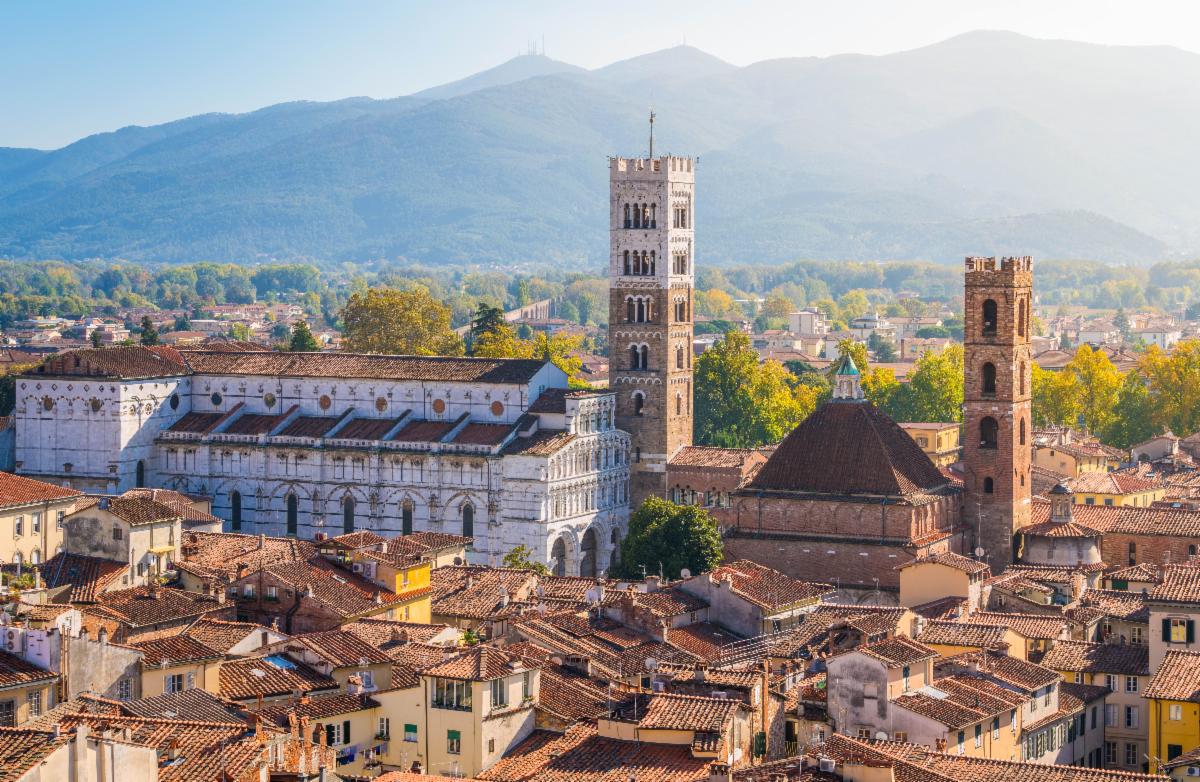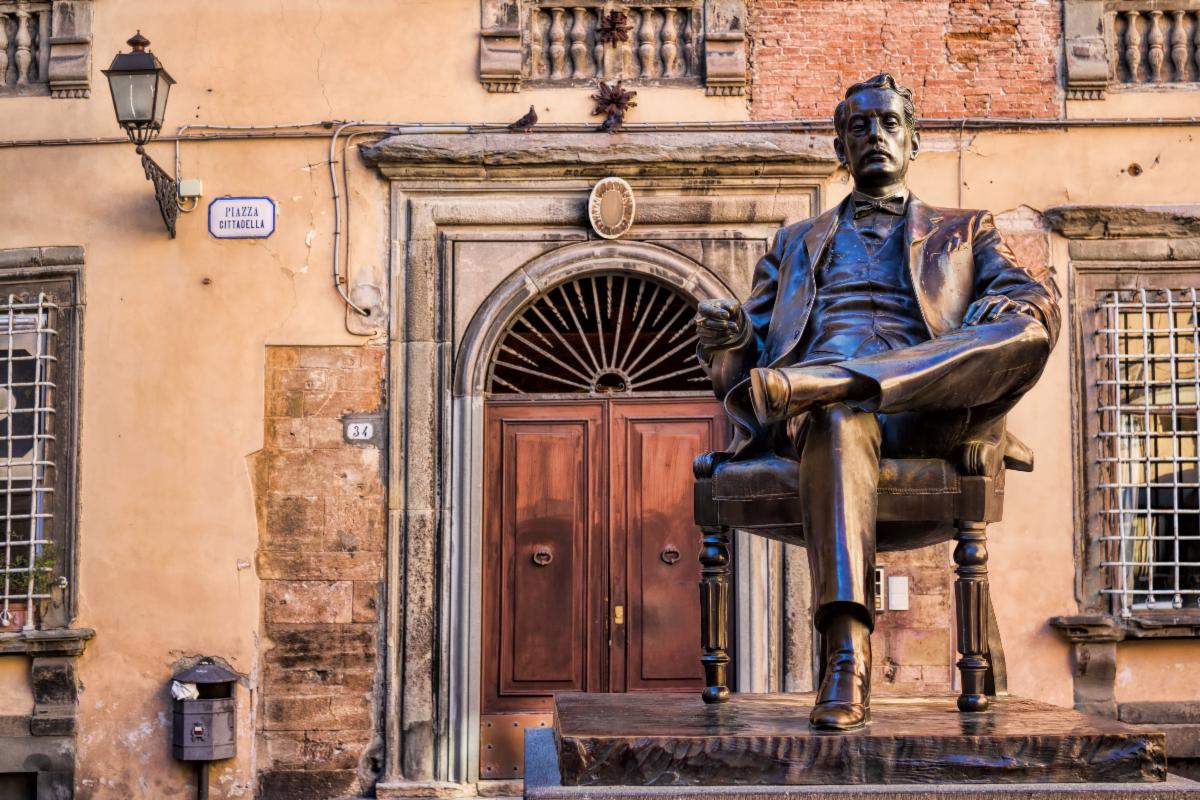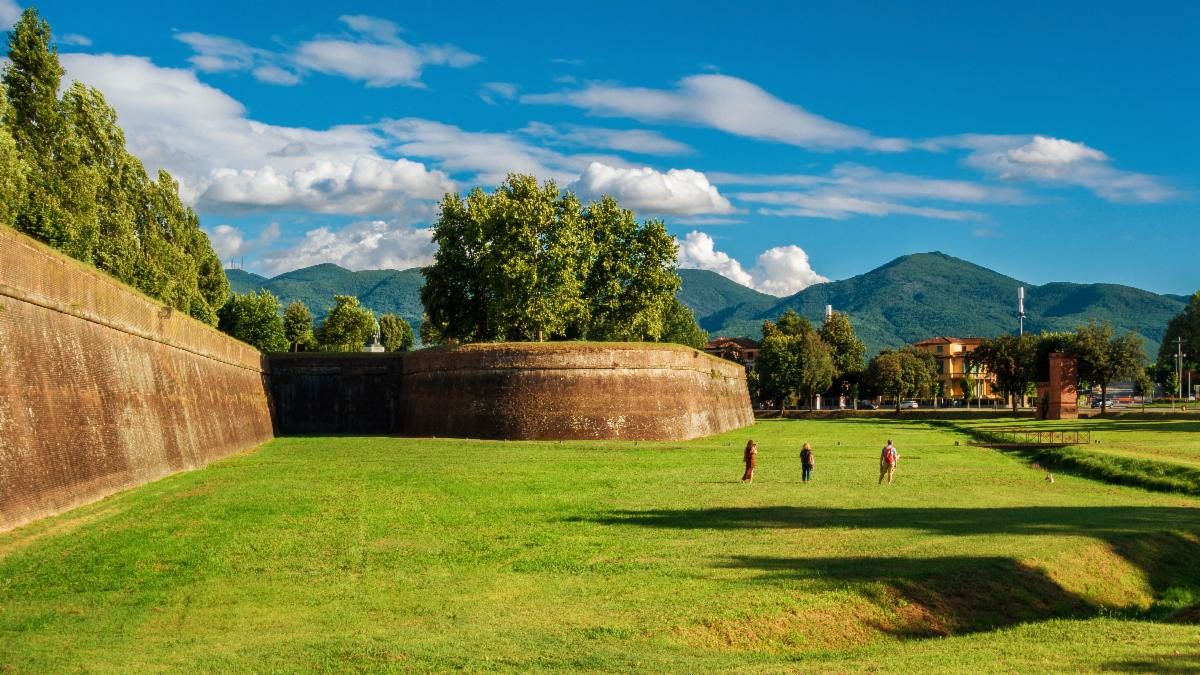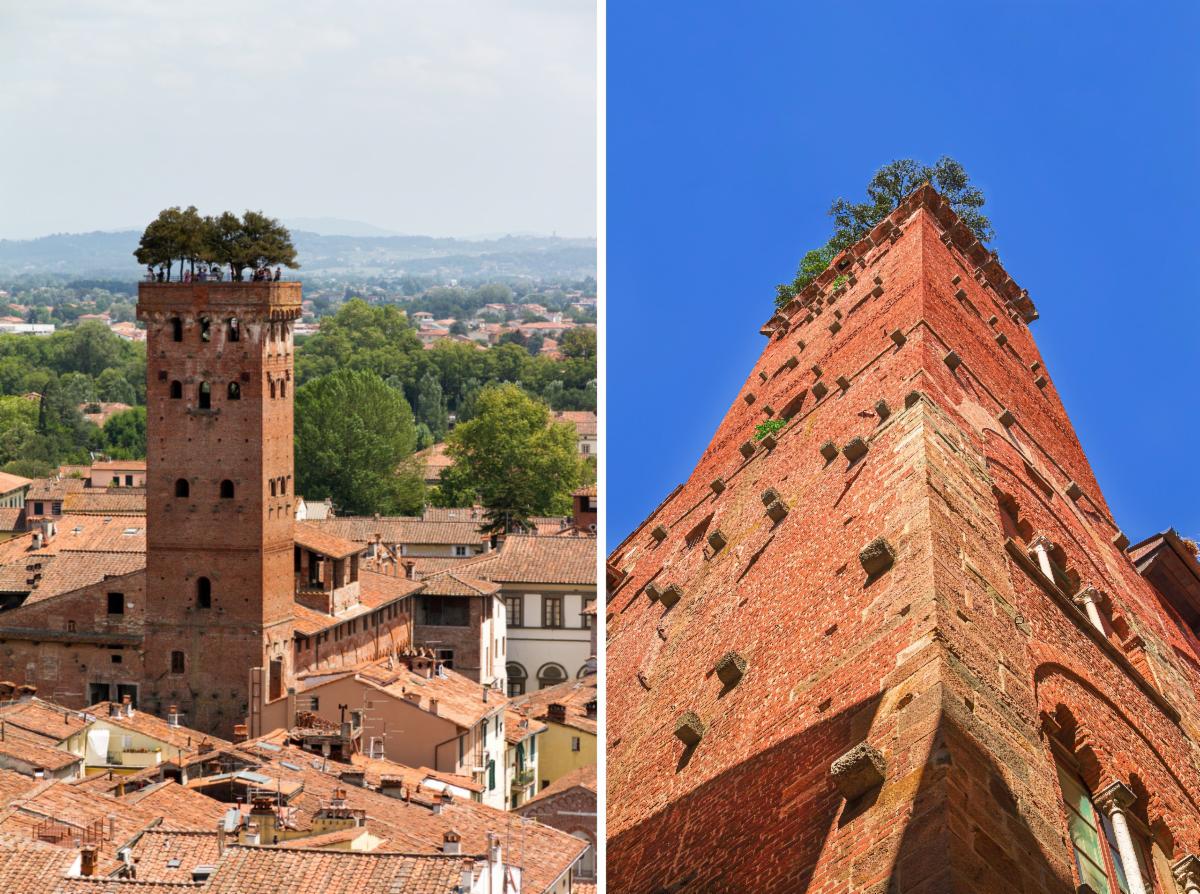There’s something quietly magnetic about Lucca. Tucked behind perfectly preserved Renaissance walls in the heart of Tuscany, this city doesn’t shout for your attention. It invites you in gently. And like a beautiful melody that lingers long after it’s played, Lucca leaves an impression that’s hard to forget.
It’s a city of rhythm and resonance, and nowhere is that more true than in the legacy of its most beloved son: Giacomo Puccini.
Born here in 1858, Puccini’s spirit still flows through Lucca like a soft aria on the breeze. Maybe that’s why the city feels more soulful than most. You don’t just see Lucca: you hear it, feel it, and breathe it in.
Here’s why it continues to hold our hearts.
THE MUSIC OF PUCCINI: Lucca’s Beating Heart
Puccini’s connection to Lucca is more than historical: it’s emotional. Walk through Piazza Cittadella, and you’ll see him immortalized in bronze, cigarette in hand, seated just steps from where he was born. His childhood home is now the Puccini Museum, where visitors can see the piano on which he composed Turandot, as well as personal letters and photographs that speak of a life forever rooted in Lucca.
But Puccini is not just remembered: he’s heard. Whether it’s the Puccini e la sua Lucca Festival, offering nightly concerts in the city’s baroque churches, or the sound of Nessun dorma drifting from an open window, the city continues to live and breathe his music.
And just 25 minutes away, in Torre del Lago, Puccini’s life story reaches its emotional peak. This is where he composed many of his operas, overlooking the serene waters of Lake Massaciuccoli. Each summer, his works return home in the Festival Pucciniano, an open-air opera series set right on the lake’s edge, within view of his villa and final resting place. It’s hard to imagine a more poetic tribute, or a more unforgettable evening under the stars.
THE WALLS: A City Inside a Park
Lucca is famously wrapped in a perfect circle of Renaissance walls, built in the 16th and 17th centuries. But unlike other fortified cities, these walls (le mura, as Luccans call them) were never breached, and never dismantled. Instead, they’ve been transformed into a 4.2-kilometer parkway above the city, shaded by horse chestnut and plane trees.
Locals treat it as a leafy loop around the city, perfect for a stroll, a good book, or a bike ride. Renting a bike and cruising the walls is one of the most fun and easy ways to take in Lucca: it’s smooth, breezy, and offers a gently elevated view of the city below. From the top, the city’s red-tiled rooftops unfold in every direction, with the Tuscan hills in the distance. It’s the best place to begin your visit, and to return to again and again.
GUINIGI TOWER: A View Touched by Trees
Lucca has its fair share of towers, but none quite as memorable as the Guinigi Tower.
From the street, it looks like your typical medieval structure: tall, narrow, slightly leaning. But look up and you’ll spot something surprising: a cluster of oak trees growing at the very top.
Yes, actual trees!
Planted centuries ago by the Guinigi family to symbolize renewal and rebirth, this rooftop garden is one of Lucca’s quirkiest and most beloved landmarks. Climbing the 230 steps to the top is no small effort, but the reward is worth it. You’ll have a panoramic view of the city and surrounding hills, filtered through the leaves of ancient holm oaks. It’s a view that stays with you.
PIAZZA DELL’ANFITEATRO: History in a Perfect Curve
Lucca’s historic center is full of beauty, but nothing captures the city’s quiet grace quite like the Piazza dell’Anfiteatro.
Built over the ruins of a Roman amphitheater, the square preserves the shape of the ancient structure. The buildings arc around in an unbroken oval, enclosing a piazza filled with sunlight and conversation. Whether you’re sipping an espresso, sketching in a notebook, or simply watching life unfold, it’s a place that encourages you to pause.
It feels less like a public square and more like the heart of a community. And, somehow, the heart of Lucca itself.Lucca doesn’t overwhelm. It draws you in. It asks you to slow down, listen more closely, and notice what’s quietly extraordinary.
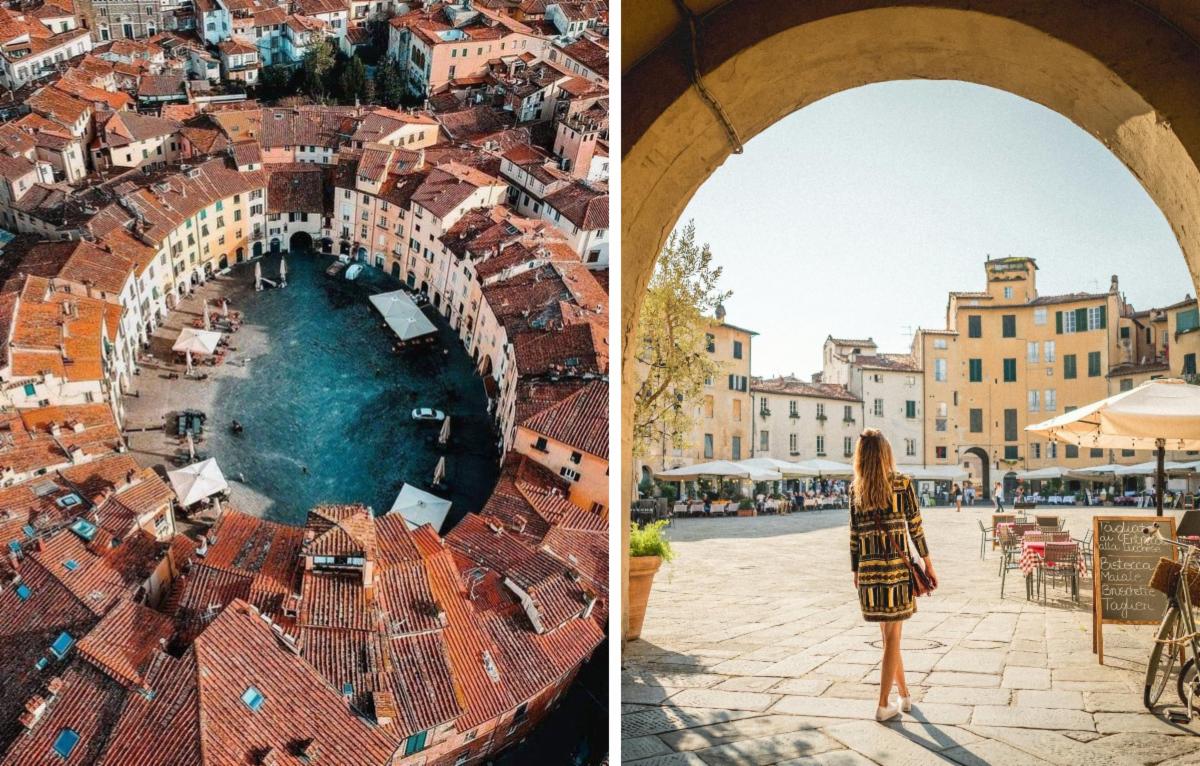
And with every tower climbed, wall walked, and Puccini note heard, you realize that this is a city with a soul.
That’s why we love Lucca so much.
